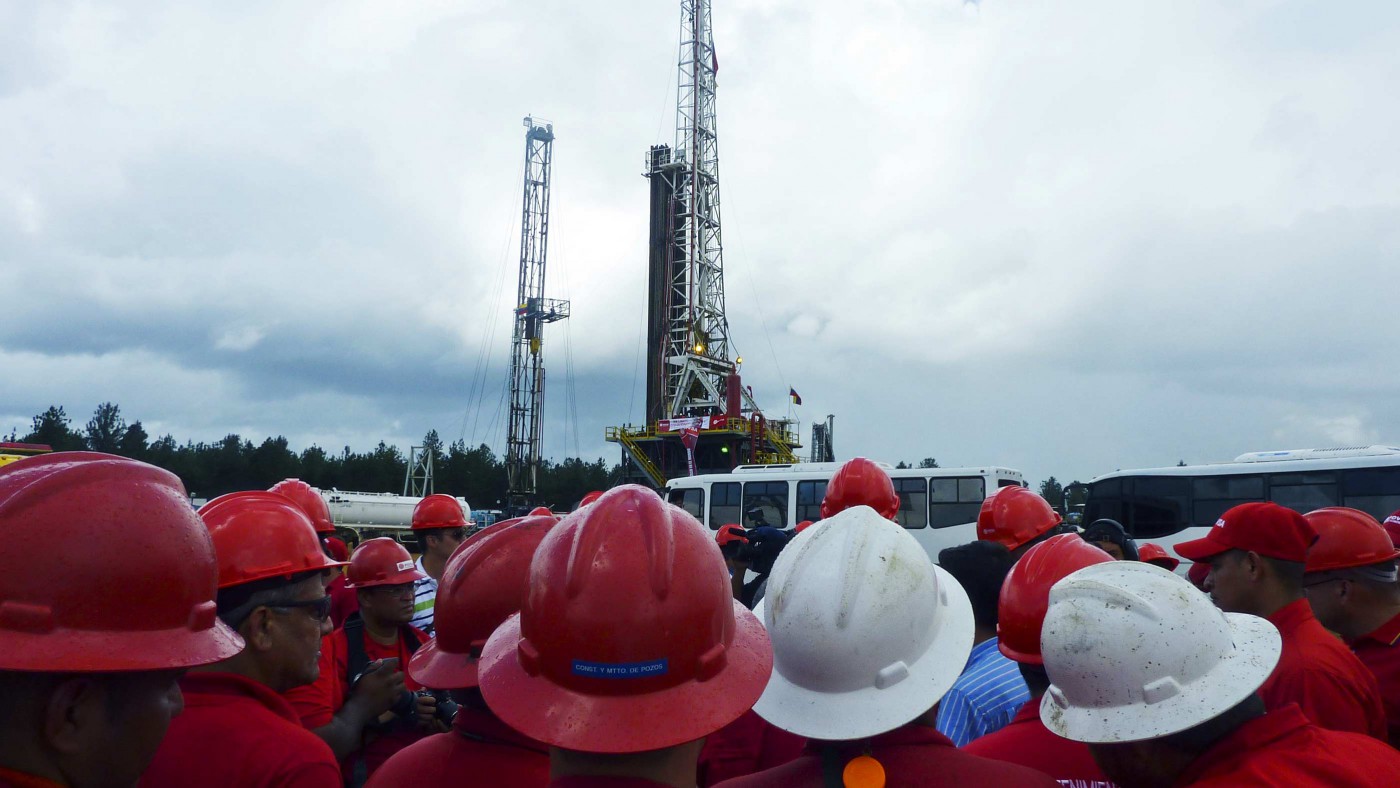Venezuela’s economy
The groundwork for the risk of default has been laid gradually over the past 15 years of Hugo Chávez’s government and patterns continue under his successor Nicholas Maduro. With inflation hitting over 60% by July this year, the currency is wildly over-valued and increasingly worthless to foreign investors and local consumers alike. Despite enjoying one of history’s longest oil booms as part of the OPEC cartel, the Venezuelan central bank reported in November this year that the country had reserves to pay only 60% of the its debt due by 2017, as the public debt reached 49.8% of GDP at the beginning of the year. With oil prices where they are now, these reserves will not be topped up any time soon. The crisis may be becoming a self-fulfilling prophecy as concerns of default increase and foreign investors pull out of the country – dollar bonds due in 2027 have sunk 3.4 cents to 37.8 cents on the dollar. Global investment portfolios are relocating “away from weak sectors” according to Seaport Group LLC strategist Michael Roche. In short, Venezuela is running out of cash.
Venezuela’s public
Oil prices are now below $60/barrel. Venezuela needs a price of $120/barrel to break even. The 48% decrease in price since June is especially worrying when you consider oil accounts for 96% of Venezuela’s exports and basic goods including foodstuffs are largely imported. Additionally, as part of the government’s appeal to popular social missions, health care and education are provided for free for the poor and food is subsidised through state stores. The government is therefore bearing some of the brunt of the gap between artificial and real prices, but the Venezuelan consumer can also expect an increasingly rapid rise in the price of consumer goods. Venezuela topped the global misery index last year, and things look unlikely to improve.
Venezuela’s government
Venezuelans now are “used to being subsidized“, and price increases will not be an easy pill to swallow – once protection is in place it is very difficult to remove. Venezuelans no longer consider subsidised gasoline or food a privilege but a right. Gasoline has become a non-tradable subsidy and no longer retains any “political capital” for the government, but has become a liability to which they are tied. For a government that has built its support as a champion of the poor and working class, a spike in living costs might be more than a blow to its popular base – it could lead to riots in the streets. One need only look at what happened the last time Venezuela tried to raise gasoline prices in 1989 – “thousands of protesters threw stones at the police, broke store windows and looted businesses“, across six major cities, including Caracas.
Poor Maduro is likely to lose support from abroad as well when he is inevitably forced to go back on the Petrocaribe pact that supplies subsidised oil to Cuba, Jamaica, Haiti and Nicaragua. Although default is not certain at this point, only 16% of the population had faith in their government’s ability to repay its debts back in October. The outlook must seem even more bleak for Venezuela’s citizens today.


